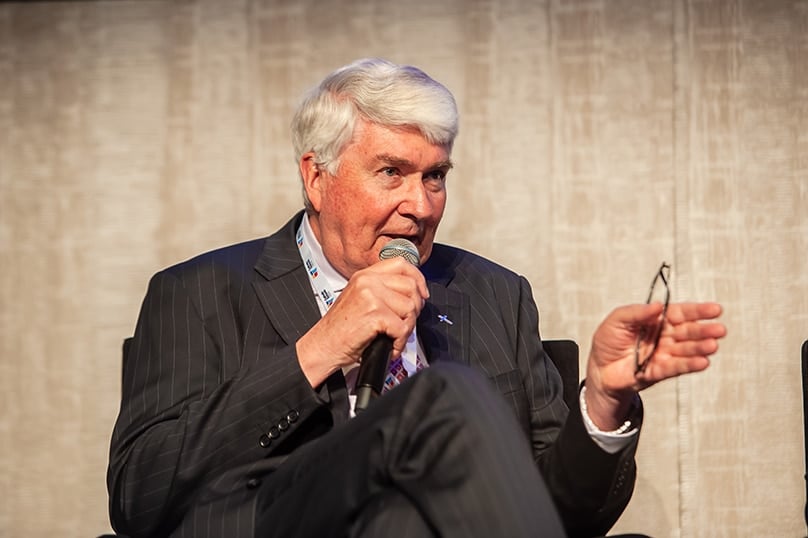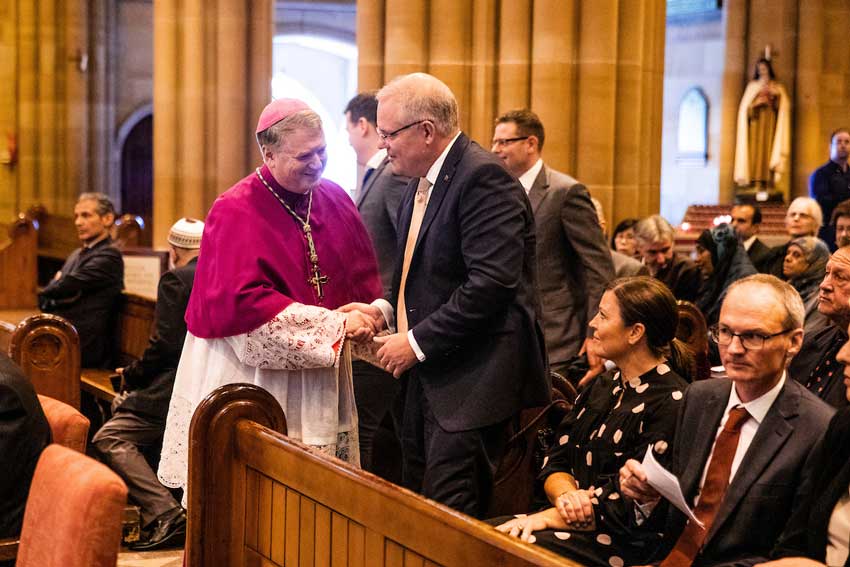
Australia has struggled to strike the right balance between freedom of religion and the right to non-discrimination in the wake of the same-sex marriage plebiscite, with the public discussion around rights tending to “become more shrill and less civil” due to identity politics and “cancel culture,” respected lawyer Fr Frank Brennan SJ has said.
In his keynote address to the 2023 education law symposium held by Catholic Schools NSW on 6 July, Fr Brennan said religious schools “should not be able to discriminate against students on the basis of their sexual orientation or gender identity.
“But religious schools should remain free to teach their doctrine respectfully and reasonably, in season and out of season. And the law should make that perfectly clear.
“We all need to concede that some religious teachings can be confronting and upsetting. But it is not for the state to rewrite the Bible or the Koran.”
Fr Brennan cited Jesus’ strong teaching on the corrupting influence of wealth, saying that schools are free to teach it even to students from wealthy families.
The Gospels’ message on human anthropology and marriage must likewise be freely taught, even when it may challenge some members of school communities.
“There’s no doubt that Jesus’ teaching on divorce has been counter-cultural for a long time; so now, his teaching on marriage,” he said.
“A Christian school must be guaranteed the freedom to teach what Jesus taught, respectfully, reasonably and counter-culturally—respectfully because the dignity of all persons must be affirmed, reasonably because a school has a fundamental educational purpose, and counterculturally because many of the things Jesus taught will never appear in the political manifestos of the Liberal Party or the Labor Party.”
Fr Brennan was a member of the Ruddock Committee, which delivered its report on religious discrimination to the Turnbull government in May 2018, finding a “major lacuna [gap] in the array of anti-discrimination legislation.”
“Our report was not released until December 2018 by the Morrison government,” Fr Brennan said.
“We recommended both a tweaked tightening of the exemptions for religious bodies in the Sex Discrimination Act and the introduction of a Religious Discrimination Act.
“The delay in release of the report and the shambolic handling of its publication highlighted the political problem with our recommendations.

“The Turnbull wing of the Liberal Party favoured the tweaked tightening of the Sex Discrimination Act provisions but not the introduction of a Religious Discrimination Act.
“The Morrison wing of the Liberal Party were troubled by the former but attracted to the latter.”
The Morrison government’s religious discrimination bill was introduced into parliament in February 2022, but was shelved after five Coalition MPs crossed the floor to support Labor during a marathon all-night siting of parliament, claiming the laws would discriminate against transgender students.
Prime Minister Anthony Albanese committed to passing his own anti-discrimination laws if elected, but since forming government has first asked the Australian Law Reform Commission to investigate the way anti-discrimination laws are applied in religious schools.
In March, the ALRC’s inquiry produced a consultation paper that was widely criticised by religious stakeholders for its seeming anti-religious bias.
The National Catholic Education Commission, Australian Catholic Bishops Conference, senior legal academics working in the field, and the leadership of Australia’s major Christian denominations and non-Christian faiths were scathing in their view of the paper.
Professor Patrick Parkinson, a senior legal expert in the field, said at the time the consultation paper “is highly damaging to the reputation of the ALRC and profoundly disrespectful to all people of faith who have engaged, with goodwill, with the commission on these issues.”
Fr Brennan, citing Prof Parkinson and NCEC executive director Jacinta Collins, called for a better balance to be struck.
“When commentators like Parkinson and Collins speak so strongly, there is room for concern,” he said.
“We need to be more vigilant and assertive, insisting that the right balance be struck respecting the human dignity of all, while ensuring the liberty for people of faith to conduct educational facilities in accordance with their religious ethos, spared unwarranted state interference and oversight by a legal academy increasingly hostile to religious belief and practice.”
Fr Brennan’s keynote was followed by a discussion panel hosted by Catholic Weekly columnist and director of public affairs and engagement for the Archdiocese of Sydney, Monica Doumit.
Ms Doumit was joined by Fr Brennan, Dr Neil Foster from the University of Newcastle and author Elisabeth Taylor, an historian and former director of research with the Australian Christian Lobby.
